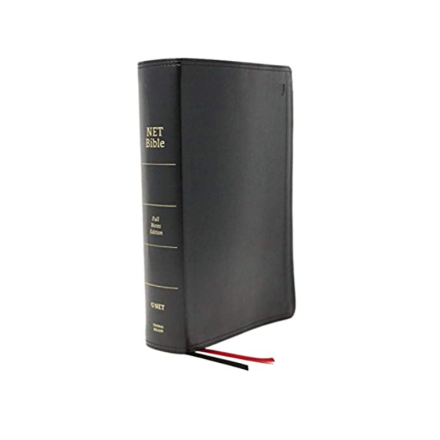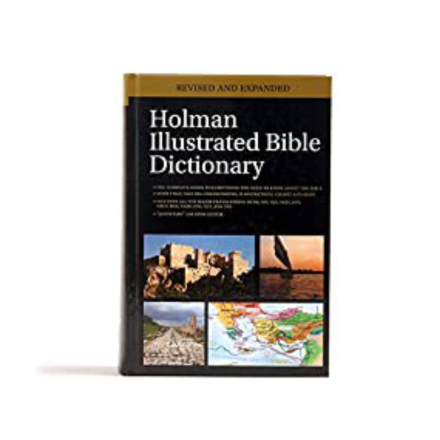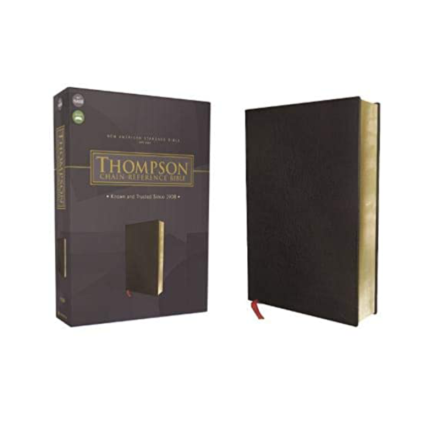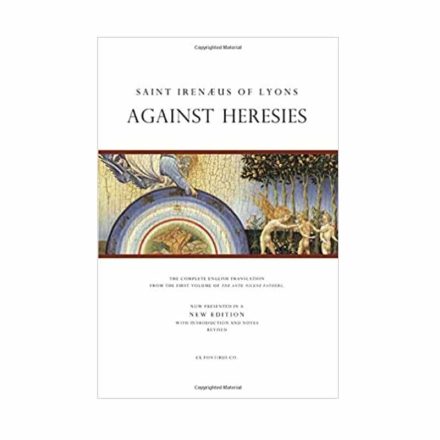Podcast (bible-study): Play in new window | Download | Embed
Subscribe: Apple Podcasts | Google Podcasts | Spotify | Amazon Music | Android | Pandora | iHeartRadio | Podchaser | Email | Deezer | RSS | More
The Truth of the Book of Job

Many of us have the same attitude sometimes, and this belief can manifest itself in a number of ways. We can believe that people down on their luck, like Job, deserve it. That they in some way caused it or brought it about by their own actions. At times it can be true, but at times the person can be, like Job, a victim of circumstances and unseen forces working against him.
The beginning of the book of Job makes clear that there was no cause on the part of Job’s individual actions (we can debate on whether there was on the part of his children), and that Satan’s affliction of him was a trial. We see that when we discuss the interaction between man and the supernatural world, that it isn’t just a matter of between us and our communication with God. There are other beings, some malevolent beings that play into the mix. This was the case when Daniel was interceding on behalf of his people in Daniel 10. Daniel had been praying for three weeks, and when he finally got his answer, a messenger from God came to him and said that he had left as soon as Daniel began to pray, but the Prince of Persia (the spiritual “power” that had authority over the land Daniel was in) had opposed him, held him back, for 21 days. It took the help of “Daniel’s” prince, the spiritual “power” with authority over Daniel’s own people, before the messenger could continue on his journey.
There is more going on than we see.
Paul reminds us of this in Ephesians 6:12 when he writes.
For we battle not against flesh and blood, but against powers, principalities, and spiritual forces of wickedness in high places.
Zophar was correct in his confidence in ultimate and absolute divine judgment, but he … like us sometimes … had a simplistic view of the circumstances in which that justice operates. Because of this, he misjudged Job and drew the wrong conclusion about Job’s circumstances.
Job’s Reply to Zophar
21 Then Job answered:2 “Listen carefully to my words;
let this be the consolation you offer me.
3 Bear with me and I will speak,
and after I have spoken you may mock.4 Is my complaint against a man?
If so, why should I not be impatient?
5 Look at me and be appalled;
put your hands over your mouths.6 For, when I think about this, I am terrified
and my body feels a shudder.
Again, Job points out that Zophar should be having empathy for Job’s dire circumstances. And then Job responds to Zophar’s assertion that it is only the wicked who suffer.
The Wicked Prosper
7 “Why do the wicked go on living,
grow old, even increase in power?
8 Their children are firmly established in their presence,
their offspring before their eyes.
9 Their houses are safe and without fear;
and no rod of punishment from God is upon them.10 Their bulls breed without fail;
their cows calve and do not miscarry.
11 They allow their children to run like a flock;
their little ones dance about.
12 They sing to the accompaniment of tambourine and harp,
and make merry to the sound of the flute.
I think that sometimes in our modern world where we are so disconnected from the immediacy of things and what has to happen to bring the lifestyle we enjoy about that we miss much of the impact of words written in agrarian cultures in earlier times.
“Their children are firmly established,” up until very recently, childbirth and childhood were very perilous things. Today, approximately 15 women die in childbirth per 100,000 live births. One hundred years ago, it was 600 women out of 100,000, and even that was an improvement over just a few hundred years before when it was twice that.[1] Before modern medicine, about a quarter of infants died in their first year of life and half died in childhood.[2] Today worldwide, the total number of children that die before age 15 is a little bit under 5%.[3] What a difference modern medicine, clean water, and proper sanitation makes.
But that was not the case in the time of Job, and that is what he is contrasting here. Job is saying that rather than their children dying young, the wicked’s children are firmly established.
This dynastic security also extends to their livestock. Job writes that “their bulls breed without fail; their cows calve and do not miscarry.” They have fertility and prosperity in every aspect of their lives.
13 They live out their years in prosperity
and go down to the grave in peace.
14 So they say to God, ‘Turn away from us!
We do not want to know your ways.15 Who is the Almighty, that we should serve him?
What would we gain
if we were to pray to him?’16 But their prosperity is not their own doing.
The counsel of the wicked is far from me!
Whether the book of Job is a literal and historical account of a man named Job or if it is entirely a constructed literary apologetic work, it contains truth. I think very likely there was someone, an unscrupulous and wicked person, that the writer of Job had in mind and was making a point about his life.[5]
How Often Do the Wicked Suffer?
17 “How often is the lamp of the wicked extinguished?
How often does their misfortune come upon them?
How often does God apportion pain to them in his anger?
18 How often are they like straw before the wind,
and like chaff swept away by a whirlwind?19 You may say, ‘God stores up a man’s punishment for his children!’
Instead let him repay the man himself
so that he may be humbled!20 Let his own eyes see his destruction;
let him drink of the anger of the Almighty.
21 For what is his interest in his home
after his death,
when the number of his months
has been broken off?22 Can anyone teach God knowledge,
Since he judges those that are on high?
Job asks Zophar, “how often do you see the wicked get what they deserve?” In Zophar’s first and second speeches to Job, he highlights the fact that wrongdoing in our endeavors or business dealings will bring judgment. In his second response, Zophar specifically says that the judgment for the wrongdoing will continue in the family line until the descendants make restitution.
Job is throwing this back to Zophar and saying, “What does the wicked care if his children pay.” Job is saying that the wicked should pay for their own sins, rather than the children. Job must have referring to people both he and Zophar knew, the rich and powerful who got away with whatever they wanted for for whom it seemed like there was no justice and no recourse against their offenses.
The same is true today isn’t it? The powerful violate laws with impunity. The connected and the privileged get away with fraud … and even insurrection … and it seems like there is no justice. These situations are the ones Job is referring to. Looking solely at this time here on earth, if that is the only measure and the end, it often seems like there is no justice.
Death Levels Everything
23 “One man dies in his full vigor,
completely secure and prosperous,
24 his body well nourished,
and the marrow of his bones moist.25 And another man dies in bitterness of soul,
never having tasted anything good.
26 Together they lie down in the dust,
and worms cover over them both.
In the end, both the wicked and the righteous, the rich and the poor, will end the same. Everyone will die and money and connections won’t save you from that. The question is “What next?”
Futile Words, Deceptive Answers
27 “Yes, I know what you are thinking,
the schemes by which you would wrong me.
28 For you say,
‘Where now is the nobleman’s house,
and where are the tents in which the wicked lived?’29 Have you never questioned those who travel the roads?
Do you not recognize their accounts—
30 that the evil man is spared
from the day of his misfortune,
that he is delivered
from the day of God’s wrath?31 No one denounces his conduct to his face;
no one repays him for what he has done.
32 And when he is carried to the tombs,
and watch is kept over the funeral mound,33 The clods of the torrent valley are sweet to him;
behind him everybody follows in procession,
and before him goes a countless throng.34 So how can you console me with your futile words?
Nothing is left of your answers but deception!”
Yes, the writer of Job is definitely referring to someone specifically here. Someone who acted with impunity and who was never called to account. Job points out that “no one denounces his conduct to his fact; no one repays him for what he has done.” It’s the same thing today isn’t it? People are cowardly and self-serving. They talk about evil and corruption, but don’t ever stop to think that they are exactly the same. They won’t stand for truth because it would hurt their position or their pocketbook. They won’t call out wrongs and they won’t try to make things right. They are just as corrupt, but they point fingers at everyone else.
I’m not sure if knowing that people and their motivations are exactly the same today as they were thousands of years ago should encourage or discourage us. We aren’t worse, we are exactly the same. This is the human condition.
The summary of Job’s second response to Zophar is, “Don’t play me for a fool. Prosperity and power is not always a reward for the righteous … the wicked have it too.”
This Bible study is part of A Study of Job (2021)
Endnotes
- [1] Laura Helmuth, “The Disturbing, Shameful History of Childbirth Deaths,” Slate, September 10, 2013, accessed October 5, 2021, https://slate.com/technology/2013/09/death-in-childbirth-doctors-increased-maternal-mortality-in-the-20th-century-are-midwives-better.html.
- [2] Max Roser, “Mortality in the Past – around Half Died as Children,” Our World in Data, accessed October 5, 2021, https://ourworldindata.org/child-mortality-in-the-past.
- [3] Ibid.
- [4] Christopher A. Perry, “Family, Gender Roles, and Marriage in the Ancient Near East and the Greco-Roman World” (n.d.), accessed October 5, 2021, https://www.academia.edu/35441066/Family_Gender_Roles_and_Marriage_in_the_Ancient_Near_East_and_the_Greco_Roman_World. If we don’t understand the importance of family, we will miss much of what Scripture is telling us. In this paper on the role of family in the Ancient Near East, Perry writes “In Israel, the family household is a microcosm of the greater picture or value of interrelated ‘houses’ concentrically based on the house of YHWH (‘ehyeh ‘asher ‘ehyeh).”
- [5] Thomas Cartelli, “Ideology and Subversion in the Shakespearean Set Speech,” ELH 53, no. 1 (1986): 2. Cartelli quotes Radical Tragedy by Jonathan Dollimore on the subversiveness of Shakespeare’s work and in art in general, “what makes an idea subversive is not so much what is intrinsic to it or the mere thinking of it but the context of its articulation–to whom, and to how many and in what circumstances it is said or written.” This reference to a wicked person who has lived a carefree life comes halfway through the book of Job after drama between Job and his friends. This condemnation and warning is hidden layers deep in the work, and after we get to this point, the tone begins to turn.




